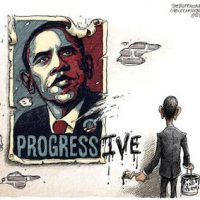A congressional select committee on reforming the budget process recently held another public hearing, supposedly with the ultimate aim of designing a more transparent, accountable, and responsible budgetary process.
Any such changes should also re-establish and enhance Congress’ power of the purse.
But if those are the goals of the Joint Select Committee on Budget and Appropriations Process Reform, it is badly missing the mark by repeatedly discussing only three proposals. They are unlikely to be much of an improvement—and could make matters even worse, if that’s possible: biennial budgeting, earmarks, and moving from a fiscal year to a calendar year.
Biennial budgeting: Among the proposals considered by the committee, one that is gaining traction is biennial budgeting.
That would relieve Congress of the obligation to submit a budget resolution each year. Instead, it would only prepare a budget every two years.
Proponents contend that such a change gives the legislative branch more time to dive deeper on the issues presented by the growing budgeting challenge, to provide more oversight of the executive, and to reduce budget dysfunction as fiscal year deadlines approach.
At the July 12 hearing, former Defense Secretary Leon Panetta, who served early in the Clinton administration as director of the Office of Management and Budget, testified that he thinks moving from annual to biennial budgeting is something that ought to be considered.
Panetta, who as a Democratic congressman from California chaired the House Budget Committee for two terms before moving to OMB, claimed it would give members of Congress more time to assess the efficacy of federal programs and ultimately lead to more oversight.
Former Rep. David Obey, D-Wis., did not come down strongly one way or another on the budgeting question, but he argued against moving to a two-year appropriations process. Obey, who served for 16 years on the House Appropriations Committee, including four years as its chairman, said such a move would substantially weaken Congress’ oversight.
As Paul Winfree, director of the Thomas A. Roe Institute for Economic Policy Studies at The Heritage Foundation, explains: “Under current law, each Congress gets at least two opportunities to express their grievances with the president by limiting funding for activities. [Biennial appropriations] would significantly limit those opportunities and further empower the executive.”
While proponents of biennial budgeting are well-meaning, moving to such a budget would be a mistake.
The reality is that annual budgeting and annual appropriating are essential tasks of the Congress, because they ensure better oversight, force lawmakers to look at the entire budget more frequently, and encourage a more responsible fiscal path.
One consequence of moving to a biennial budget is the added uncertainty it would bring. Having to budget for two years, instead of one, introduces serious variability in fiscal projections for federal programs.
Even under a regime of biennial budget resolutions with annual appropriations, the budget resolution would become even less of a governing document. That’s a move in the wrong direction.
Earmarks: The witnesses were also asked to share their thoughts on earmarks—legislative proposals that allocate money for members’ specific projects or localities.
While Obey didn’t take a strong stand either way, Panetta supported giving back members’ earmarking ability, contending that lawmakers represent their constituents and should have the opportunity to justify spending.
Panetta conceded, however, that history has shown that earmarking can get out of control, so it ought to be inextricably paired with transparency and limitations.
Earmarks are not a solution to the nation’s budget problems. They open the door to corruption and parochial spending.
Read the full story from The Daily Signal
Want more BFT? Leave us a voicemail on our page or follow us on Twitter @BFT_Podcast and Facebook @BluntForceTruthPodcast. We want to hear from you! There’s no better place to get the #BluntForceTruth.







